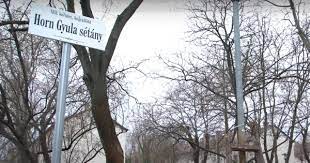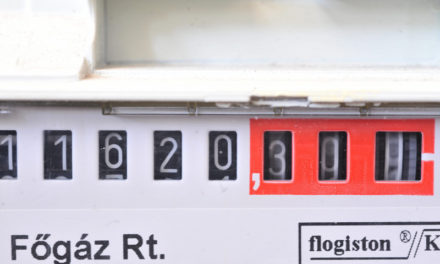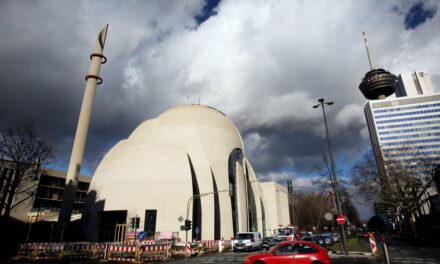It is a great struggle for small nations to survive on the sea of peoples' struggle, where there must be a sailor on board who can go from Cape Horn to the Cape of Good Hope. At the moment, this passage is a promenade in Angels' Land, on which today's Hungarian politics and, with a slight exaggeration, our entire history are crowded.
Can a district name a public space after whoever it wants; who or what controls this and at what level? With the Gyula Horn Promenade, the capital has thrown a stone into the otherwise mirror-smooth waters of our public life. The left, which is very short on statesmen who can be taken on, especially role models, tried to present someone so that their man could finally enter the national pantheon. It is characteristic of their lack of cadres that they only had one. At the same time, it can be a matter of debate whether a small community has the right to agree at a local level on the glorification of divisive or unknown persons elsewhere. But if we accept this, then we have to put up with it if other controversial figures can also be given the street. Moreover, this is a matter of perspective, since according to their own logic, the Romanians rightly erect a statue of Avram Iancu or celebrate the day of the Trianon peace decree, while this is unthinkable for us. (Or still: cf. Péter Medgyessy- Adrian Năstase's champagne at the Kempinski!-ed.)
There probably won't be Kossuth Platz in Vienna, János Hunyadi Caddesi in Istanbul or Bulcsú Strasse in Sankt Gallen.
Back home, the MTA decides on such issues, but unfortunately, thank God, this is not mathematics, it cannot be calculated on paper here, the only root is with a pencil, there is no completely objective decision. There is no irrefutable, proven proposition in history, literature, or philosophy. The usefulness of a politician, his actions and their consequences are difficult to describe with equations. (Is Görgey's laying down his arms treason or the preservation of Hungarian blood; where exactly can Thököly or Dózsa be classified? etc. In the West, they try to anachronistically apply modern aspects to events hundreds of years earlier, so there are hardly any unblemished actors left.)
However, even if we accept that alternative solutions can be applied at the local level, we should be careful with the example in large, symbolic spaces. The judgment of an Angyalföld promenade is opinionated, but at the same time, it was a mistake to turn the Árpád-híd city center into Árpád Göncz, who derailed the regime change. He places the memory of the divisive president of the republic undeservedly high, moreover, because of the subway, he is announced daily in Fővinform.Undoubtedly, it would give rise to interesting situations if we left naming entirely to the local administration; it might be strange that the answer to the question, "Where is the Imrédy Béla School?", would be: "On the corner of Rákosi Mátyás and Szálasi Ferenc utca, from the Damjanich promenade towards the Haynau wharf."
There are cases and persons in which there is a national consensus and there should be. But there are where there is none. There are places where it would be good to change this, and there are places where it fits.
Endré Bajcsy-Zsilinszky was criticized by the communists because of his past as a racial defender, but because he organized an anti-German armed struggle before his death and was executed by the Arrow Guards, he was still allowed to walk the streets after '45. But not everywhere! In Békéscsaba, where the Zsilinszky brothers lived - although they were later acquitted by the court for self-defense - they murdered the popular peasant leader in the town, Áchim L. András, whose name today bears the name of a housing estate in the county seat of Békés, but there is no public space named after Bajcsy-Zsilinszky.
The judgment of a person is cleared after his death, so it is also unlucky to name him after the living (see the case of László Uszoda Kiss from Százhalombatta). As long as we live, we can commit sins, but we can also make them good. In Jesus' parable, the vinedresser who goes to work in the last hour receives a denarius, just like the servant who has been working since morning. Imre Nagy was a part of many atrocities, he was an active participant in the introduction of a twentieth-century dictatorial system, but with his martyrdom and refusal to betray the revolution, he joined the ranks of the good.
Question, did Gyula Horn join in as a vineyard worker at the last hour?
Let the promenade supporters convince us of this, because the fact that the MSZP won an election and then brought the SZDSZ to power is not enough for appreciation. This also increases his sins. He didn't even run for an apology, instead he went with "I was a chump, so what". Instead of mudslinging, hating and educating, we would like to read a list supported by arguments about what Horn has done that is worthy of commemoration and that erases and overwrites his previous actions.But if the socialists are desperately looking for a role model whom they can point to, so that they too can finally have a hero from the past fifty years, then let me suggest Imré Pozsgay, who was just as present - perhaps even more so - at the dismantling of the party state, he helped lead the bloodless transition , his radio announcement about the revaluation of '56 can be considered a symbolic moment of the regime change, and at least he did not shoot at the revolutionaries earlier.
Source: vasarnap.hu
Featured image: városterkep.hu













